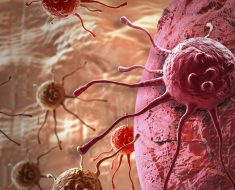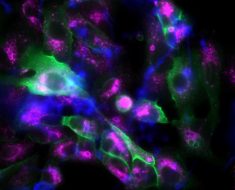A new review was published in Genes & Cancer on December 13, 2022, entitled, "Pathogenesis to management of hepatocellular carcinoma."
In this review, researchers Ben L. Da, Kelly I. Suchman, Lawrence Lau, Atoosa Rabiee, Aiwu Ruth He, Kirti Shetty, Herbert Yu, Linda L. Wong, Richard L. Amdur, James M. Crawford, Sharon S. Fox, Gregory M. Grimaldi, Priya K. Shah, Jonathan Weinstein, David Bernstein, Sanjaya K. Satapathy, Nyasha Chambwe, Xiyan Xiang, and Lopa Mishra from Donald and Barbara Zucker School of Medicine at Hofstra, Northwell Health, VA Medical Center in Washington D.C., Georgetown University Medical Center, University of Maryland, University of Hawaii, University of Hawaii Cancer Center, and The Feinstein Institutes for Medical Research discussed hepatocellular carcinoma (HCC)-;the most common primary liver cancer, whose incidence continues to rise in many parts of the world due to a concomitant rise in many associated risk factors, such as alcohol use and obesity.
Genetics & Genomics eBook

"Hepatocellular carcinoma (HCC) is the sixth most common cancer worldwide and the third most common cause of cancer death."
Although early-stage HCC can be potentially curable through liver resection, liver-directed therapies, or transplantation, patients usually present with intermediate to advanced disease, which continues to be associated with a poor prognosis. This is because HCC is a cancer with significant complexities, including substantial clinical, histopathologic, and genomic heterogeneity. However, the scientific community has made a major effort to better characterize HCC in those aspects via utilizing tissue sampling and histological classification, whole genome sequencing, and developing viable animal models.
These efforts ultimately aim to develop clinically relevant biomarkers and discover molecular targets for new therapies. For example, until recently, there was only one approved systemic therapy for advanced or metastatic HCC in the form of sorafenib. Through these efforts, several additional targeted therapies have gained approval in the United States, although much progress remains to be desired.
"This review will focus on the link between characterizing the pathogenesis of HCC with current and future HCC management."
Genes & Cancer
Da, B.L., et al. (2023) Pathogenesis to management of hepatocellular carcinoma. Genes & Cancer. doi.org/10.18632/genesandcancer.226.
Posted in: Medical Research News | Medical Condition News
Tags: Alcohol, Cancer, Carcinoma, Genes, Genome, Genomic, Genomics, Hepatocellular Carcinoma, Liver, Liver Cancer, Medical Research, Medicine, Obesity, Research, Sorafenib, Tumor, Whole Genome Sequencing
Source: Read Full Article





